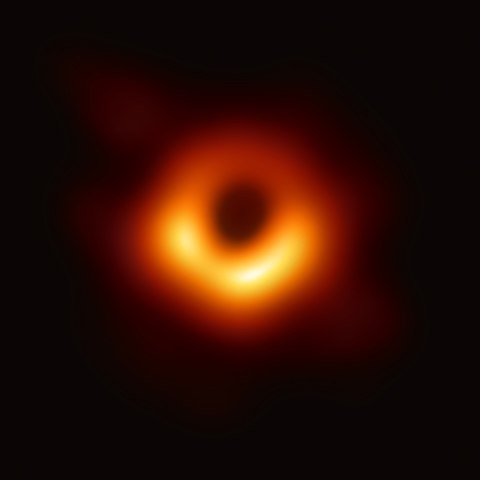
How long do black holes last? Black holes will slowly dissolve, but it will take far longer than the length of our universe, so it has never been observed.
There are two ways that black holes form. The first way is when a star collapses. As stars die, they burn up all of their hydrogen, converting it into helium, and then collapse in on themselves. If the star is large enough, as it contracts it will heat up and it will then convert the helium into carbon. When this is done, the star will collapse again and convert the carbon into oxygen, neon, silicon, magnesium, sulfur, and iron. Iron is the last element the star can produce. Once the whole star is iron, it will collapse under its own gravity again and heat to billions of degrees before exploding in a supernova. What’s left of the core will collapse and become a neutron star. A neutron star is the densest material in the universe and has tremendous gravity. However, if the original star was large enough, it will become a black hole.
The second way to form a black hole is when a giant cloud of gas collapses under its own weight. The oldest black holes in the universe were formed this way because they appeared before the universe was 800 million years old and that wasn’t long enough for any stars to form and collapse into a black hole. There were many clouds of gas in the early universe and some of them became stars and galaxies. If the cloud was big enough, it could collapse before it formed any stars into an enormous black hole.
Black holes have so much gravity that nothing, not even light, can escape from them. We only know that they are there because of the gravitational effect they have on the other bodies in space around them and because of the accretion disk around them. If things get too close to a black hole, they will fall in and form a disk of dust, gas, and particles around the black hole that can be seen. As black holes pull in more matter, their mass grows and their gravity increases with it, pulling in more matter, and so on.
So, how long do black holes last? It was long thought that energy could only go in to a black hole and nothing could escape from one. After all, if light doesn’t have enough energy to get out of a black hole, then nothing would. Stephen Hawking proved in 1974 that this wasn’t true and he discovered Hawking radiation, which is a very small stream of energy coming out of a black hole.
In space, even in a vacuum, pairs of particles appear all the time. They are caused by changes in the amount of energy in a point in space and the energy manifests as one particle and one antiparticle. When they meet, they annihilate each other and disappear again. This is happening all over space all the time. However, Stephen Hawking said that if these particles appear at the event horizon of a black hole, the antiparticle might be sucked into the black hole, but the particle might escape. The antiparticle has negative energy and the particle has positive energy. Because the black hole has absorbed negative energy and the positive energy has escaped, there is a net loss of energy from the black hole. This happens constantly and the escaping energy is known as Hawking radiation.
Black holes are constantly losing energy and dissolving. However, they are so large and have so much energy that it is a process that will take longer than the probable life of the universe. For a supermassive black hole to disappear, the one at the center of the Milky Way Galaxy, for example, would take a googol of years. That is 1 with 100 zeroes after it. By that time, there may be nothing else left in the universe anyway. And the black holes will only dissolve if they lose more matter than they take in. As they tend to draw in quite a lot of matter, it is unlikely that they will dissolve while there is any matter left in the universe. Once the universe has spread out so far there is no matter left, though, and it may be the start of the end for them.
As black holes lose mass and get smaller, their gravity decreases, and the speed at which they lose energy increases. When they get small enough, the remaining energy will escape in an explosion that will be bright, but 22 trillion times less bright than a supernova. And this is what I learned today.
Image By Event Horizon Telescope, uploader cropped and converted TIF to JPG – https://www.eso.org/public/images/eso1907a/ (image link) The highest-quality image (7416×4320 pixels, TIF, 16-bit, 180 Mb), ESO Article, ESO TIF, CC BY 4.0, https://commons.wikimedia.org/w/index.php?curid=77925953
Sources
https://www.space.com/15421-black-holes-facts-formation-discovery-sdcmp.html
https://www.space.com/34281-do-black-holes-die.html
https://www.space.com/black-holes-general-relativity-gravity
https://www.sciencealert.com/hawking-radiation
https://science.nasa.gov/astrophysics/focus-areas/black-holes
https://science.howstuffworks.com/star6.htm
https://www.nasa.gov/vision/universe/starsgalaxies/Black_Hole.html
https://www.livescience.com/65857-direct-collapse-black-holes-proved-theoretically.html
https://en.wikipedia.org/wiki/Quantum_fluctuation
